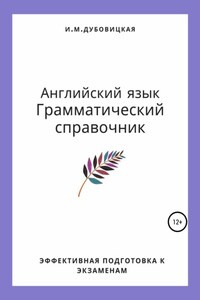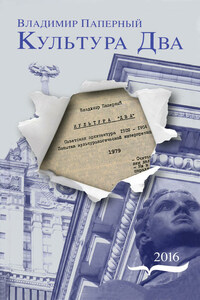Существительные. Единственное и множественное число
1. Существительные в большинстве случаев при образовании множественного числа получают окончание -s.
Примеры:
apple – apples,
table – tables,
machine – machines
2. Если существительное заканчивается на -s, -ss, -sh,-ch, -x, -o – то во множественном числе оно получает окончание -еs.
Примеры:
box – boxes
bus – buses
dush – bushes
tomato – tomatoes
baby – babies
Но!Photo – photos / video – videos
3. Существительные, заканчивающиеся на согласную + y, вместо -y получают -ies во множественном числе.
Примеры:
try – tries
fly – flies
Но!
4. Существительные, заканчивающиеся на гласную (-a/e/o/u) + y, получают окончание -s.
Примеры:
toy – toys
boy – boys
5. Существительные, заканчивающиеся на -f/-fe, во множественном числе получают окончание -ves.
Примеры:
thief – thieves
wife – wives
knife – knives
Ho! roof – roofs
proof – proofs
chief – chiefs
6. Следующие исключения необходимо запомнить:
man – men, woman – women, policeman – policemen, fireman – firemen,
child – children, ox – oxen;
tooth – teeth, goose – geese, foot – feet, mouse – mice;
sheep – sheep, fish – fish, deer – deer
1.1. Образуйте множественное число данных существительных:
an ox, a dog, a fly, a wife, a knife, a man, a top, a shelf, a radio, a policeman, a toy, a crash, a locker, a flower, a blow, a drop, a proof, a clap, a guy, a church, a fox, a potato, a army, a party, a teacher, a month, a coat, a bridge, a volcano, a party, a banana, a room, a day, a fly, a knife, a sandwich, a university, a shelf, a play, a key, a taxi, a way, a tragedy, a language, a comedy, a parrot, a dog, a watch, a puppy, a flamingo, a glass, a box, a lady, a piano, a tomato, a city, a computer, a lion, a subway, a butterfly, a theatre, a girlfriend, a hero, a cargo, a wolf
1.2. Напишите данные предложения во множественном числе:
1.3. Заполните пропущенные слова. Одно слово лишнее.
oxen/geese/thieves/bushes/children/men/sheep/fish
1. The Browns’ have four ______. They all go to the kindergarten.
2. After sneaking out of the house ______ were hiding in the ______.
3. The Browns’ had a lot of animals on their farm: ______, _____, ______.
4. They say there is a lot of ______ in the pond.
1.4. Образуйте множественное число существительных:
1.5. Найди ошибки в словах:
Photoes – photos, dodoes, zeroes, tomatoes, potatos, kiloes, buffaloes, videos, pianoes, mosquitoes, stereoes, radios, studios, echos, heroes, gooses, foots, citys, wolfes, mens, womans.
________________________________________________________________
1.6. Раскройте скобки, употребляя имена существительные во множественном числе:
I have two little brothers (a brother). They are (1)_____ (a twin). They have a lot of (2) ______ (a pencil) and ______ (an album). They like to draw (3) _____,_______,_______,______,______ and ________. (a house, a tree, a dogs, a duck, a star and a doll). My elder sisters cannot draw (4) ______, _____,______ and ______. (a car, a bus, an animal and an apple). I help them.
My (5) ______ and ______ (a grandmother, a grandfather,) live in a big village. They have a nice farm. There are a lot of (6)_____, ______, _______, _______ and _______ (a cow, a calf, a horse, a pig and a piglet) there. I like to play with (7) ______ (a rabbit). They are very funny.
My best friend has three elder (8) ______ (a brother). They are (9) ______ (a student). They have a lot of (10) _______ (an interest). They like to play computer (11) ______ (a game), to watch horror _____ (a film), and to collect ______ (a stamp) and toy _____ (a bus). I think their (12) _______ (a hobby) are very interesting.
Местоимения используются, чтобы избежать повторений в речи, заменяет существительные, прилагательные.
My friend’s name is Jon, he is a nice fellow though sometimes he only thinks of himself. Once I wanted to take a book from our library but he insisted it was his. So I had to give it back to him.
Существует два типа:
1. Именительный падеж (кто? что?) (I, you, we, they)
заменяют в тексте существительные,
имена нарицательные, чтобы избежать повторения.
Пример: Michael goes to school every day. Apparently, he likes attending the classes.
2. Объектный падеж (кого? что? кому? чему?)
Пример: I brought him the book from my last trip. So he didn’t forget me and brought me the pencils from his last trip.
Личные местоимения в именительном падеже в предложении выступают в роли подлежащего, ставится перед глаголом, в то время как объектный падеж выступает в роли дополнения, ставится после глагола.
Пример: I gave him the book.
Притяжательные местоимения
Также делятся на 2 группы, отвечают на вопросы (какой? какая? какое? Какие?), характеризуют принадлежность объекта и связь между ними. На русский язык оба типа переводятся одинаково. Второй тип местоимений используется, чтобы избежать повторов в предложении. Существительное после него не употребляется, в то время как первый тип притяжательных местоимений всегда сопровождается существительным.
Пример: Моя кошка чёрная. Его кошка белая. Ему не нравится моя кошка. Эта кошка моя.
My cat is black. His cat is white. He doesn’t’ like my cat. The cat is mine.
Возвратное местоимение в русском языке переводится как «себя» либо суффикс «-ться». Возвратные местоимения используются для обозначения выполнения действия самим субъектом или когда действие направлено на самого человека.
Примеры:
I cut myself. Я порезался.
She introduced herself. Она представилась.
John introduces himself. Джон представил себя сам.
We cooked the dinner ourselves. Мы сами приготовили этот ужин.
В единственном числе добавляется суффикс -self
Во множественном числе – -selves (обратите внимание на правило образования множественного числа существительных -f/-fe – -ves).
2.1. Замените слово в скобках на личное местоимение:
1. He is sleeping. (George)
2. ___ is brown. (the blackboard)
3. ___ are on the shelf. (the books)
4. ___ is running. (the boy)
5. ___ are watching videos on YouTube. (my friends and I)
6. ___ are in the shop. (the flowers)
7. ___ is riding his bike. (Ted)
8. ___ is from New York. (Victor)
9. ___ has got a brother. (Diana)
10. Has ____ got a computer? (Mark)
2.2. Выберите подходящий тип притяжательного местоимения:
1. Is this yours / your ball?
2. It's theirs / their problem, not our/ours.
3. It's a bad idea of your / yours to go to the bar tonight.
4. Are these her / hers shoes?
5. We're going swimming with some friends of our/ours.
6. Is it yours / your article about spiders? – No, it's not my / mine.
7. We know their / theirs phone number but they don't know our / ours.




